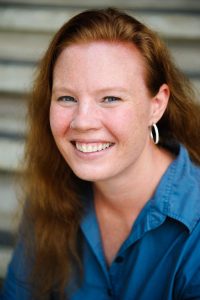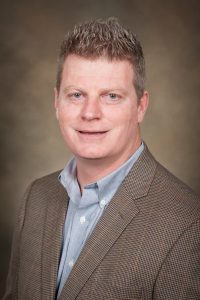From the September 2017 Desktop News | Two University of Alabama professors will pursue work and research through the U.S. Fulbright Scholars Program in 2017 and 2018.

Dr. Samantha Hansen, associate professor of geological sciences, will be in Greece for the fall semester, working at the National Observatory of Athens. She will combine seismic data from a countrywide seismograph network with her tomographic imaging technique—producing images through a ground-penetrating wave—to develop models for the Hellenic Subduction Zone.
The Hellenic Subduction Zone is the most seismically active region in Europe, capable of generating large magnitude earthquakes and tsunamis, Hansen said.
Because Greece sits above the western end of the subduction zone, it faces significant risks from these geologic hazards. The National Observatory works to provide a better overview of the region to assess seismic risks.

Dr. Gregory Starr, professor of biological sciences, will spend six months in France starting in January 2018. He will work with the French National Institute for Agricultural Research on a project titled “Food Security and Human Populations Growth: Trading Water for Carbon to Increase Food Production for the 21st Century.”
His work examines how climate change may disrupt agricultural and the possible serious consequences for food security globally—particularly when considered in the context of population growth and the need to increase food production. This increase in food production could lead to scarcity of water and soil resources. He will look at how science can increase crop growth by reducing or capturing greenhouse gas emission in agricultural areas through the use of alternative agricultural practices.
Through these new practices, the research group can provide new methods to reduce the vulnerability of crops by making them less sensitive and more resilient to changes in temperature and precipitation, as well as to extreme weather and disturbance events.
Starr will expand work with a colleague at the institute and test hypotheses about trade-offs in water and carbon using a variety of agro-ecological systems. Starr will also teach two workshops on environmental instrumentation and global change.
The Fulbright Program was established in 1946 under legislation introduced by then-Senator J. William Fulbright of Arkansas. The Fulbright Program is sponsored by the U.S. State Department’s Bureau of Educational and Cultural Affairs.
The Fulbright Program awards approximately 8,000 grants annually. Roughly 1,600 U.S. students, 4,000 foreign students, 1,200 U.S. scholars, and 900 visiting scholars receive awards, in addition to several hundred teachers and professionals. Approximately 370,000 “Fulbrighters” have participated in the program since its inception in 1946.
Faculty interested in the Fulbright Scholar program can learn more from the Capstone International Center, 135 B.B. Comer Hall.